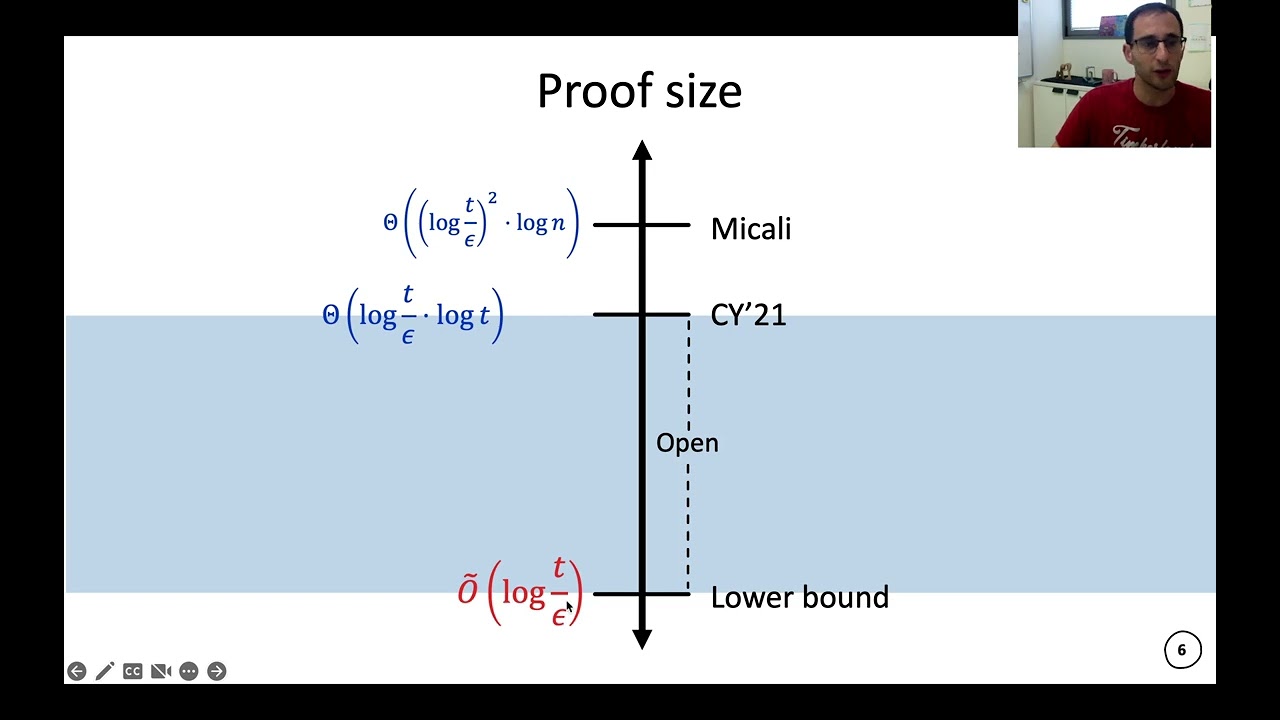Welcome to the resource topic for 2022/178
Title:
Lower Bound on SNARGs in the Random Oracle Model
Authors: Iftach Haitner, Daniel Nukrai, Eylon Yogev
Abstract:Succinct non-interactive arguments (SNARGs) have become a fundamental primitive in the cryptographic community. The focus of this work is constructions of SNARGs in the Random Oracle Model (ROM). Such SNARGs enjoy post-quantum security and can be deployed using lightweight cryptography to heuristically instantiate the random oracle. A ROM-SNARG is \emph{(t,\varepsilon)-sound} if no t-query malicious prover can convince the verifier to accept a false statement with probability larger than \varepsilon. Recently, Chiesa-Yogev (CRYPTO '21) presented a ROM-SNARG of length {\Theta}(\log (t/\varepsilon) \cdot \log t) (ignoring \log n factors, for n being the instance size). This improvement, however, is still far from the (folklore) lower bound of \Omega(\log (t/\varepsilon)). Assuming the \textit{randomized exponential-time hypothesis}, we prove a tight lower bound of {\Omega}(\log (t/\varepsilon) \cdot \log t) for the length of {(t,\varepsilon)-sound} ROM-SNARGs. Our lower bound holds for constructions with non-adaptive verifiers and strong soundness notion called \textit{salted soundness}, restrictions that hold for \emph{all} known constructions (ignoring contrived counterexamples). We prove our lower bound by transforming any short ROM-SNARG (of the considered family) into a same length ROM-SNARG in which the verifier asks only a \emph{few} oracles queries, and then apply the recent lower bound of Chiesa-Yogev (TCC '20) for such SNARGs.
ePrint: https://eprint.iacr.org/2022/178
Talk: https://www.youtube.com/watch?v=3Eg4zDbNErg
Slides: https://iacr.org/submit/files/slides/2022/crypto/crypto2022/142/slides.pdf
See all topics related to this paper.
Feel free to post resources that are related to this paper below.
Example resources include: implementations, explanation materials, talks, slides, links to previous discussions on other websites.
For more information, see the rules for Resource Topics .
